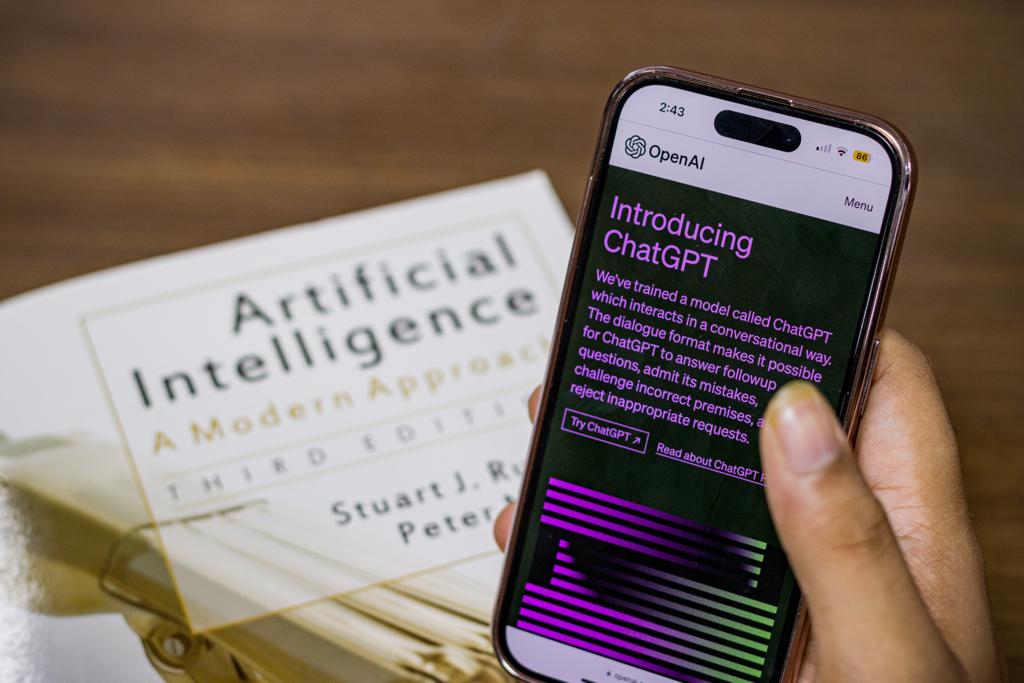What is B2B Marketing?
B2B marketing refers to the marketing activities and strategies that are aimed at selling products or services from one business to another business. In other words, it is a form of marketing that involves selling products or services to other companies, rather than to individual consumers.
B2B marketing often involves longer sales cycles and more complex decision-making processes than B2C marketing, as it typically involves selling higher-priced products or services to a smaller number of customers. B2B marketing also tends to focus more on building long-term relationships with customers and creating value for them over time.
Examples of B2B marketing activities include trade shows, industry events, email marketing campaigns, content marketing, and account-based marketing.
The goal of B2B marketing is to generate leads, build brand awareness, and ultimately drive sales for the business.
What is Chat GPT?
Chat GPT (Generative Pre-trained Transformer) is a large-scale natural language processing model developed by OpenAI. It is one of the most advanced language models in the world, capable of generating human-like text in response to prompts or questions.
Chat GPT is part of a family of models that have been trained on massive amounts of text data using unsupervised learning techniques. This training enables the model to understand the structure of language and generate coherent and contextually appropriate responses to a wide range of questions and prompts.
Chat GPT has a wide range of potential applications, including chatbots, customer service, language translation, content creation, and more. It is constantly being improved and updated by OpenAI and is available for use by developers and businesses around the world.
How does Chat GPT impact B2B content marketing?
Chat GPT can have a significant impact on B2B content marketing in several ways.
Firstly, Chat GPT can be used to create highly engaging and personalized content for B2B marketing campaigns. For example, businesses can use chatbots powered by Chat GPT to create conversational marketing experiences for their customers.
These chatbots can be programmed to understand and respond to customer queries in real-time, providing them with relevant content and information that addresses their specific needs and interests.
Secondly, Chat GPT can be used to automate the creation of B2B content, such as blog posts, whitepapers, and case studies. With the help of Chat GPT, businesses can generate large volumes of high-quality content quickly and efficiently, freeing up time and resources for other marketing activities.
Thirdly, Chat GPT can help businesses to optimize their B2B content marketing strategies by providing insights into customer preferences and behavior. By analyzing the language and topics that customers are engaging with, businesses can identify trends and patterns that can inform their content marketing strategies, helping them to create content that resonates with their target audience.
Benefits of Chat GPT for B2B Content Marketing:
There are several benefits of using Chat GPT for B2B content marketing:
1. Improved personalization: Chat GPT can help businesses create highly personalized content that addresses the specific needs and interests of their customers. By analyzing customer data and behavior, Chat GPT can generate content that is tailored to each customer’s unique preferences and requirements, resulting in a more engaging and relevant content experience.
2. Increased efficiency: Chat GPT can automate the creation of B2B content, such as blog posts, case studies, and whitepapers. This can help businesses generate large volumes of high-quality content quickly and efficiently, freeing up time and resources for other marketing activities.
3. Enhanced engagement: Chat GPT can help businesses create conversational marketing experiences that are more engaging and interactive than traditional marketing campaigns.
By providing customers with personalized content and real-time responses to their queries, businesses can build stronger relationships with their customers and improve customer loyalty.
4. Improved analytics: Chat GPT can provide businesses with insights into customer preferences and behavior. By analyzing the language and topics that customers are engaging with, businesses can identify trends and patterns that can inform their content marketing strategies and help them create content that resonates with their target audience.
5. Competitive advantage: By leveraging the power of Chat GPT for B2B content marketing, businesses can gain a competitive advantage in their industry. By creating more personalized, efficient, and engaging content, businesses can differentiate themselves from their competitors and build a stronger brand identity.
Disadvantages of Chat GPT for B2B content marketing:
While Chat GPT has many benefits for B2B content marketing, there are also some potential disadvantages to consider:
1. Lack of control: Chat GPT generates text based on the input it receives, which means that businesses have limited control over the content that is created. This can be a disadvantage if the generated content does not align with the brand’s messaging or if it contains inaccuracies or errors.
2. Ethical concerns: Chat GPT has the ability to generate highly convincing fake text, which raises ethical concerns about its use in B2B content marketing. Businesses must ensure that they use Chat GPT ethically and responsibly, and avoid using it to deceive customers or misrepresent their brand.
3. Technical expertise required: Developing and implementing Chat GPT for B2B content marketing requires technical expertise, which can be a challenge for businesses that do not have in-house technical capabilities. This can increase costs and lead to delays in implementing Chat GPT for content marketing.
4. Limited language capabilities: While Chat GPT is capable of generating text in many languages, its language capabilities may be limited for certain niche industries or markets. This can be a disadvantage for businesses that operate in highly specialized or localized markets.
5. Data privacy concerns: Chat GPT requires large amounts of data to train and operate effectively, which raises data privacy concerns for businesses that use the technology. Businesses must ensure that they comply with data privacy regulations and protect customer data when using Chat GPT for content marketing.
Is Chat GPT the future of B2B content marketing?
Chat GPT has the potential to revolutionize B2B content marketing by enabling businesses to create more personalized, engaging, and effective content at scale. While it is difficult to predict the future with certainty, it is likely that Chat GPT will play a significant role in the evolution of B2B content marketing in the coming years.
One reason why Chat GPT may be the future of B2B content marketing is that it allows businesses to create highly personalized content that addresses the specific needs and interests of their customers. With the rise of personalization in marketing, Chat GPT’s ability to generate customized content at scale is likely to become increasingly important.
Another reason why Chat GPT may be the future of B2B content marketing is that it allows businesses to automate the creation of content, freeing up time and resources for other marketing activities. As the volume of content required for marketing campaigns continues to increase, Chat GPT’s ability to generate high-quality content quickly and efficiently is likely to become more valuable.
Additionally, Chat GPT’s ability to create conversational marketing experiences that are more engaging and interactive than traditional marketing campaigns is likely to become increasingly important in a world where customers expect personalized and immersive content experiences.
Overall, while it is difficult to predict the future with certainty, it is clear that Chat GPT has the potential to transform B2B content marketing by enabling businesses to create more personalized, efficient, and engaging content at scale.








